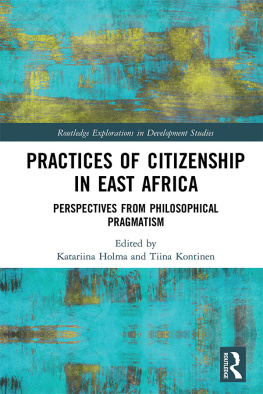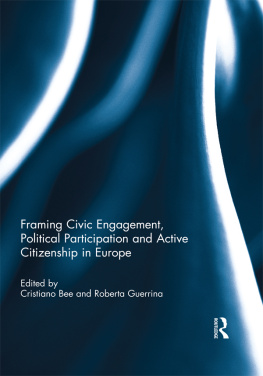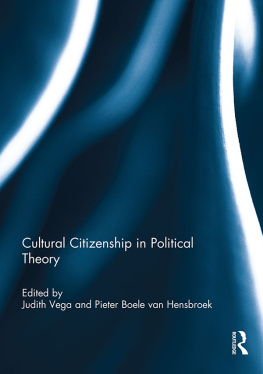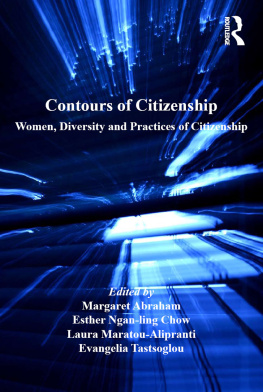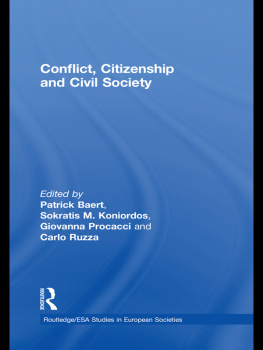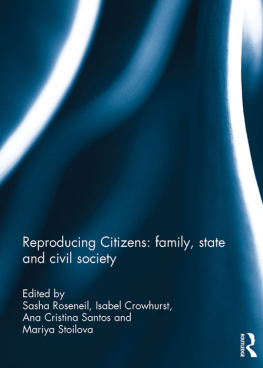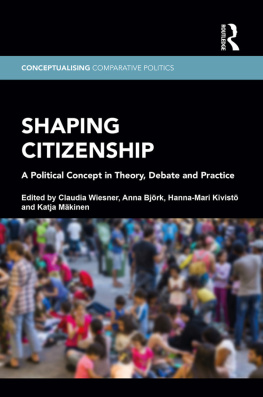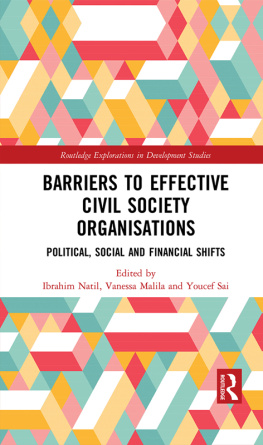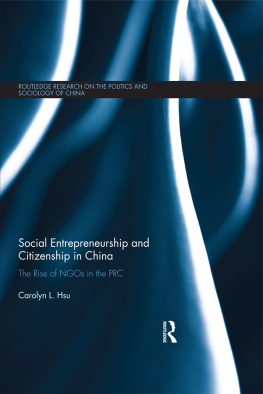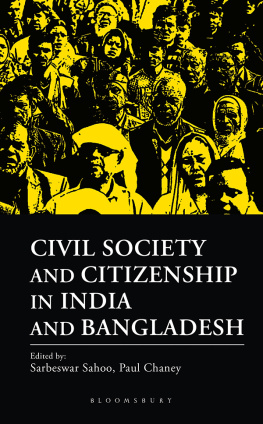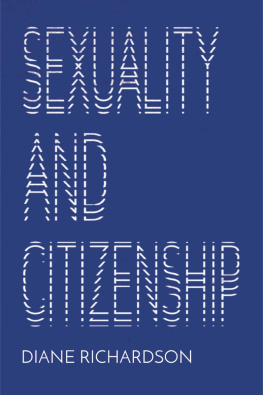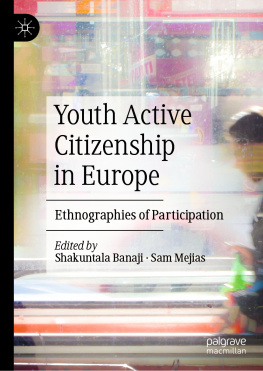

First published in Great Britain in 2015 by
Policy Press University of Bristol 1-9 Old Park Hill Bristol BS2 8BB UK Tel +44 (0)117 954 5940 e-mail
North American office: Policy Press c/o The University of Chicago Press 1427 East 60th Street Chicago, IL 60637, USA t: +1 773 702 7700 f: +1 773-702-9756
Policy Press 2015
British Library Cataloguing in Publication Data
A catalogue record for this book is available from the British Library
Library of Congress Cataloging-in-Publication Data
A catalog record for this book has been requested
ISBN 978-1-4473-1691-6 Hardcover
ISBN 978-1-4473-2142-2 ePub
ISBN 978-1-4473-2143-9 Mobi
The right of Sue Kenny, Marilyn Taylor, Jenny Onyx and Marjorie Mayo to be identified as authors of this work has been asserted by them in accordance with the Copyright, Designs and Patents Act 1988.
All rights reserved: no part of this publication may be reproduced, stored in a retrieval system, or transmitted in any form or by any means, electronic, mechanical, photocopying, recording, or otherwise without the prior permission of Policy Press.
The statements and opinions contained within this publication are solely those of the authors and not of the University of Bristol or Policy Press. The University of Bristol and Policy Press disclaim responsibility for any injury to persons or property resulting from any material published in this publication.
Policy Press works to counter discrimination on grounds of gender, race,
disability, age and sexuality.
Cover design by Robin Hawes
Front cover image: www.alamy.com
Readers Guide
This book has been optimised for PDA.
Tables may have been presented to accommodate this devices limitations.
Image presentation is limited by this devices limitations.
Contents
Sue Kenny is Emeritus Professor in the Community and International Development programme at Deakin University, Australia. She was previously the director of the Centre for Citizenship, Development and Human Rights at Deakin University. Her research includes comparative studies of active citizenship, community development and the third sector. Recent publications include Developing communities for thefuture (2011), Challenging capacity building: Comparative perspectives (2010) (co-edited with Matthew Clarke) and Post-disaster reconstruction: Lessons from Aceh (2010) (co-edited with Matthew Clarke and Ismet Fanany).
Marilyn Taylor is Emeritus Professor at the University of the West of England, Bristol, UK, and visiting research fellow at the Institute for Voluntary Action Research. Her research covers community development, neighbourhood governance and voluntary sector policy. Recent publications include a fully revised second edition of Public policy in the community (2011) and, with Alison Gilchrist, A short guide to community development (2011). Marilyn is a member of the editorial boards for the Community Development Journal and Voluntas .
Jenny Onyx is Emeritus Professor of Community Management in the Business School at the University of Technology, Sydney, Australia. She is co-director of Cosmopolitan Civil Societies research centre, and former editor of Third Sector Review . She is particularly concerned with issues of advocacy, social capital, social impact, volunteering and civil society, and has published widely in these fields with over 100 refereed publications, including Comparative third sector governance in Asia: Structure, process and political economy (2008) (co-edited with SamiulHasan); Spinning straw into gold: Social capital in everyday life (2004) (with Rosemary Leonard); A dynamic balance: Social capital and sustainable community development (2005) (with Ann Dale); Emergence, social capital and entrepreneurship: Understanding networks from the inside (2011) (with Ellen Baker and Melissa Edwards).
Marjorie Mayo is Emeritus Professor of Community Development at Goldsmiths, University of London, UK, where her research has included a focus on learning for active citizenship and access to justice in disadvantaged communities. Previous publications include Global citizens (2005) and Cultures, communities, identities (2000). Recent publications include Access to justice for disadvantaged communities (2014) (with Gerald Koessl, Matthew Scott and Imogen Slater).
Dedicated to all those in far-flung places across the globe who have given their valuable time to share their varying experiences and challenges with us, pointing to ways forward and promoting active citizenship based on the values of cooperation, social solidarity, human rights and social justice.
Why this book?
The idea for this book emerged as the four of us sat in the sunshine, sharing reflections, during breaks between sessions at the International Society for Third Sector Researchs conference in Siena, Italy, in 2012. The third sector was facing many challenges in the context of neoliberal globalisation, challenges with major significance in relation to our shared interests in the promotion of democratic participation, equalities and social justice. Was globalisation opening up new spaces for active citizenship, locally, nationally and/or internationally? Or was the third sector becoming increasingly incorporated into neoliberal agendas? How far could the third sectors own claims for its contributions be justified by the evidence? What about the dark side to the third sector and to wider social movements, the side that excludes outsiders and practises discriminatory approaches to active citizenship? And in what ways might the third sector be reinventing itself, more generally, in response to changing circumstances?
Between us, we began to share reflections from our own empirical research, comparing and contrasting experiences from a wide variety of contexts, across continents. We started to identify the theoretical implications, taking account of differing definitions and varying perspectives. And we began to reflect on the possible ramifications for developing policies and practices to promote active citizenship.While we set out to unpack contested concepts and critically examine the evidence, this did not in any way imply that we had no starting positions ourselves. Far from being totally neutral, we share common commitments to the values of equality, social solidarity, human rights and social justice, together with respect for diversity and differences within and between communities. These shared commitments have underpinned our approach to the third sector and active citizenship.
This has not meant, though, that we have been in total agreement. Given our own particular backgrounds, from different continents, and given our varying theoretical approaches and experiences, as researchers and activists, it would have been somewhat surprising if we had found ourselves in unanimous agreement about each aspect of every chapter. So how have we managed the process of writing this book together?
Sue Kenny took the lead in developing the proposal in outline. Once this had been agreed we each took responsibility for drafting specific chapters. Sue Kenny produced the first drafts of Chapters Two, Three, Four and Seven. Jenny Onyx produced the first drafts of Chapters Six, Ten and Eleven. Marilyn Taylor produced the first draft of Chapter Five. In addition she produced the first draft of Chapter Eight jointly with Marjorie Mayo who also produced the first draft of Chapter Nine. Marjorie Mayo took the running with the introductory chapter while Marilyn Taylor produced the first draft, with Jenny Onyx, of the concluding chapter. These drafts were then discussed and revised, taking account of each others comments, adding examples from our own research and experiences, respecting each others insights without necessarily accepting every suggestion or agreeing on every particular point. Marilyn Taylor then completed the process with a final edit, for overall coherence (with some assistance from Marjorie Mayo), exploring the links between the different chapters to highlight common themes. Similar processes were put in place, at the next stage, in response to the reviewers helpful feedback.


